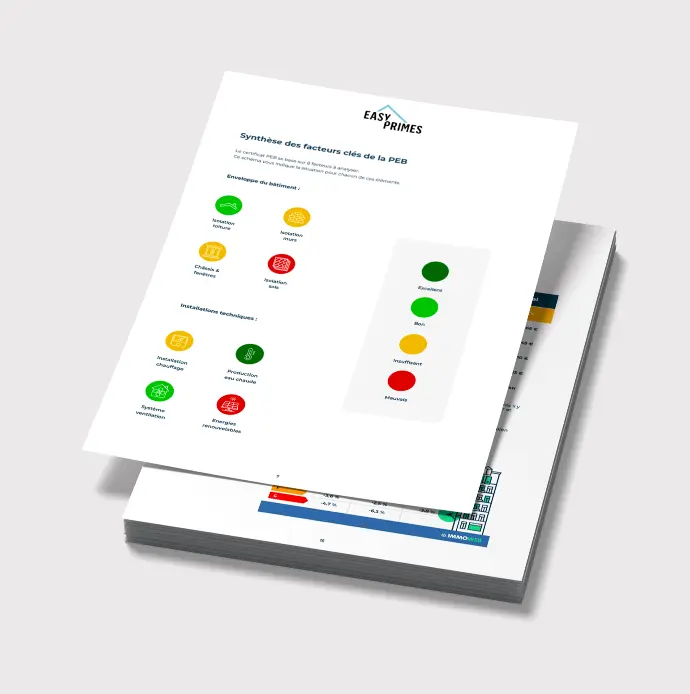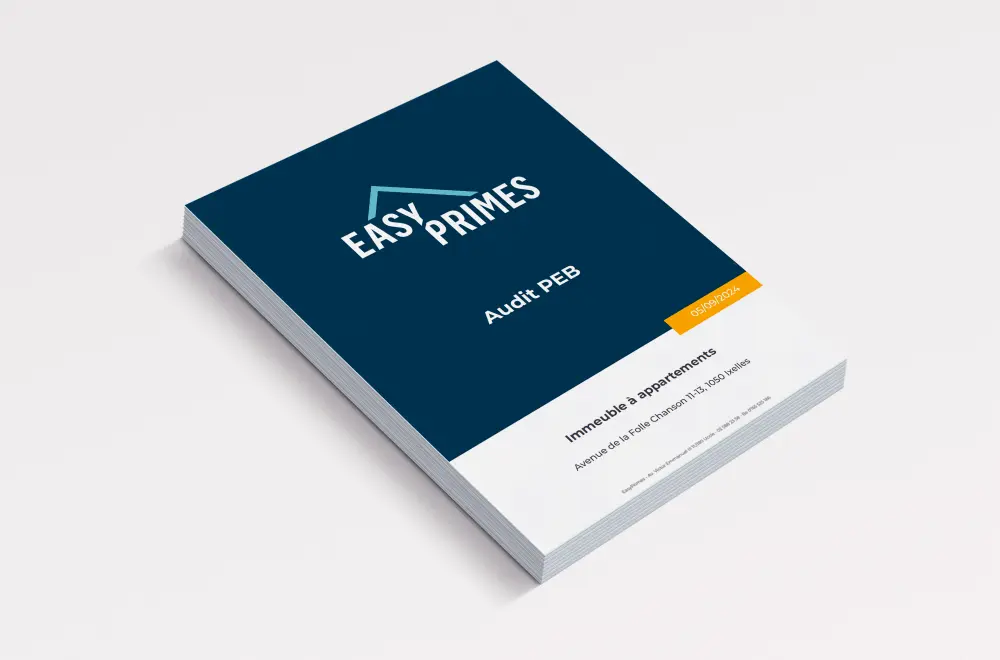Audit énergétique
Des solutions sur mesure selon votre région.
Audit à Bruxelles Audit en Wallonie Audit en Flandre

Passez à l'action aujourd'hui !
À Bruxelles, à partir de 2033, les biens immobiliers avec une mauvaise performance énergétique seront soumis à des amendes importantes, et toutes les rénovations devront être complétées d'ici 2050. Prenez les devants dès maintenant en réalisant un audit PEB. Améliorez la performance de votre bien, évitez les sanctions futures et augmentez sa valeur sur le marché.
Nous vous proposons de réaliser un audit sur base du protocole PEB. Ce qui nous permet de vous conseiller sur les travaux pour atteindre le meilleur impact à moindre coûts.
Contactez nous dès aujourd'hui pour sécuriser votre avenir énergétique !
Les étapes d'un audit énergétique
1
Relevé PEB
Visite et relevé de toutes
les unités au sein de la
copropriété
2
Encodage, analyse et
création du
rapport
EasyReno prépare la stratégie de
rénovation
3
Présentation
- Réunion d’une heure en visioconférence
- EasyReno présente la stratégie de rénovation
4
Rapport final
- Mise à jour éventuelle
- Envoie du rapport final et des certificats PEB (en option)
Commander un Audit PEB pour votre bien
Notre audit PEB à Bruxelles
Nos audits PEB respectent le cahier des charges de Renolution pour les audits énergétiques.
Vous pouvez profiter de la réalisation d'un audit PEB pour le coupler avec la réalisation de certificats PEB. Cela nous permet de réduire le nombre de visite et d'obtenir une vision globale de vos rénovations.










